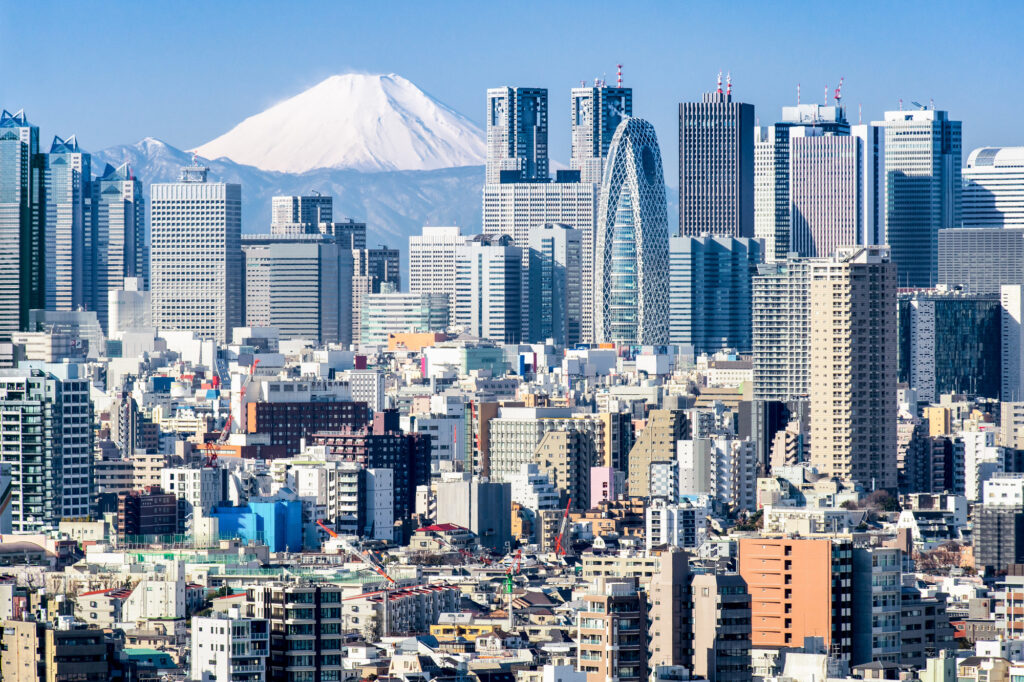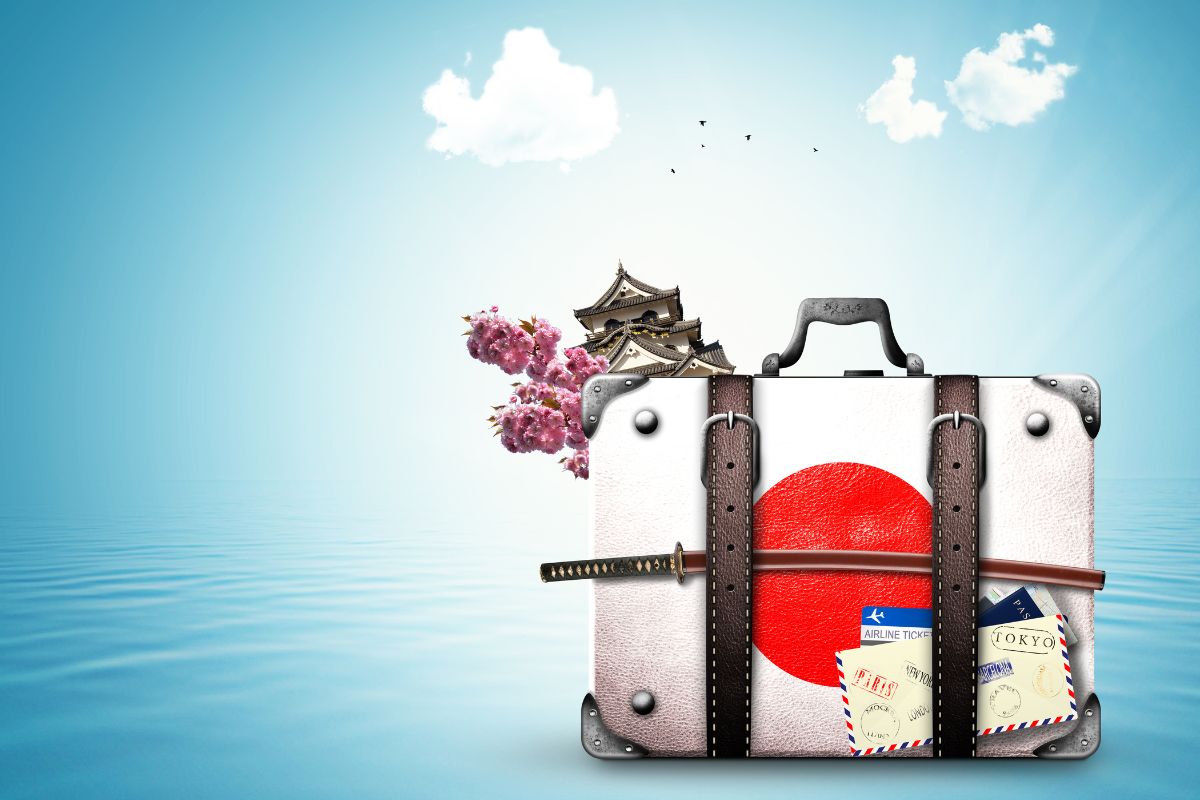
Did you know that Japan is the second most desired country people want to move to? Many foreigners consider moving to Japan for the rich culture and affordable cost of living in certain areas.
But there are several important things to know before deciding to move to Japan to make the transition seamless. Are you considering living in Japan but feeling a bit unprepared?
The following guide will explore 14 things crucial to starting your life in Japan. Read on so that you can go to Japan with the knowledge and confidence to thrive!
1. When to Move to Japan
Japan’s fiscal year begins in April for schools and businesses. So, consider making your move to the Land of the Rising Sun between January and early April if you have children or a job lined up.
You will encounter far less competition between June and August when it comes to finding the best apartments to live in. It’s also less expensive to hire movers during these months instead of moving during the peak times.
2. Work Visas Before Moving to Japan
You’ll need to obtain the proper work visa before moving to Japan, whether you’re staying temporarily or permanently. It’s important to note that it’s illegal to work in Japan without the right visa even if the job is informal or brief.
You don’t want to start your life in Japan with an arrest or costly fines! Make sure to start the visa application process early to limit any complications with your move. Contact a Japanese Embassy if you’re unsure about your eligibility in the country.
3. Japan Is a Very Safe Place to Live
Japan has one of the lowest rates of crime despite its population of over 127 million citizens. It’s also an especially safe country for women and has excellent policing.
There are a few organized crime syndicates but they’re heavily controlled and observed by Japan’s government. Of course, you should always keep an eye on your belongings and stay aware of your surroundings like you would anywhere else in the world.
4. How to Get a Driver’s License
If you intend to live in Japan for less than a year, get an international driver’s license. You can also get your current license translated depending on the country you’re moving from.
However, you’ll want to get an official Japanese license if you’re expecting to stay longer than a year. The process usually takes about two weeks and involves both a written test and a driving test.
5. Japanese School Systems
You’ll want to fully understand how Japanese school systems work if you’re moving with children. Kids spend 6 years learning in elementary school and 3 years learning in junior high before high school.
Public schools in Jpan before high school don’t have any fees to pay. But the tuition for public high schools depends on your family’s income. Public high schools in Japan still cost much less than private options.
You might also consider an international school for your child. Public, private, and international schools all have their advantages and disadvantages so do your research and choose carefully.
6. The Cost of Moving
First, decide on the size of your home or apartment and factor in your rent. Add about $100 for utility bills and $200 for food each month. Your monthly cost in Japan could be around $2,000 total assuming your rent is between $1,500 to $1,800.
Remember that popular cities such as Tokyo tend to have much higher rents. You’ll also want to factor in any new furniture and appliances for your new home. Most Japanese jobs pay monthly so plan your budget accordingly.
7. Prepare for Severe Weather
Keep in mind that Japan has dangerous natural disasters such as earthquakes that you must prepare for. In fact, 1,500 earthquakes rock Japan annually because the country’s location is along the Pacific Ring of Fire.
Fortunately, Japan has excellent preparation for the worst-case natural disaster scenarios. For example, they design their buildings specifically to resist frequent earthquake incidents.
8. Learning the Language
Consider learning the basics of the Japanese language to make your moving experience a lot easier. Learning the language will help you communicate each day, make friends, find a home, and navigate health services.
Remember that most Japanese people living outside of major cities only speak a little English if any at all. Try learning Japanese before moving so that you can easily transition into everyday living.
9. Japanese Holidays
Japanese citizens celebrate sixteen national holidays and other major events each and every year. The biggest Japanese holidays include New Year’s, Golden Week, and Obon Week.
Golden week is the longest holiday period in Japan and lasts from April 29th to May 5th. Most companies shut down during this timeframe to allow their workers to celebrate. The week includes Constitution Day, Showa Day, Children’s Day, and Greenery Day.
Expect tourist attractions and major cities to be extremely busy and crowded during these holidays. Plan ahead if you intend to participate or if you plan to use public transportation for work.
10. Tattoos in Japan
Traditional Japanese views consider tattoos to be taboo because they spoil the gift your parents gave you. So, tattoos are basically seen as disrespectful to elders.
Some Japanese citizens even associate tattoos with criminals. It’s likely because members of the Yakuza crime syndicate typically have their entire bodies inked.
It’s also important to note that you’re not allowed in an onsen if you have tattoos (see also ‘Are You Allowed In Onsen With Tattoos? Know This Before You Go‘). Onsens are natural hot springs found in the countryside and you must be naked to use them, so hiding tattoos isn’t an option (see also ‘Bessho Onsen: Travel Guide’).
11. Cash is King
Try to always have cash on you when you’re out and about in Japan. It’s still a cash society and a lot of businesses won’t accept credit cards.
Also, banks close at 3 pm so Japanese convenience stores work as a better option for taking cash out (learn more about great Japanese convenience stores here). Popular Japanese stores such as Family Mart always have ATMs with easy-to-follow English options.
12. Explore the Countryside
You must try to experience the fantastic Japanese countryside even if you plan to live in a major city. The country is made up mostly of beautiful mountains and forests so take advantage of the natural beauty all around you.
The north has snowy mountains, there are amazing sand dunes in the west, and the south boasts beautiful beaches. A quick escape into Japanese nature is a great way to clear your head and decompress after a week of work.
Also, cherry blossoms bloom all around Japan once a year. It begins in south Japan during January and moves north through the islands until May. The blooms only last one week in each location so plan accordingly and don’t miss out!
13. Setting up a Bank Account
JP Bank is a great banking option, especially for anyone that doesn’t have a job lined up yet. The bank accepts anyone with a longer-term visa and they don’t require you to speak Japanese to set up an account.
However, JP Bank doesn’t offer credit card options to their customers. While it’s a great place to start, you’ll probably want to set up a second bank account after sorting out your job in Japan.
14. Japanese Etiquette
There are a lot of unspoken rules in Japan and it’s important to understand Japanese etiquette before moving. Because the rules are unspoken, you’ll get a lot of awkward stares if you break them, but you’re unlikely to know why!
First of all, try to keep your voice down in public and never get too loud while traveling on trains. You shouldn’t take phone calls or blow your nose while using trains either. Tranquility is a big part of Japanese living and that’s not possible with obnoxious noises.
Never leave a tip after dining in restaurants because it might deeply offend the employees. This might be a difficult habit to break at first if you’re moving from a country like America.
You should always take off your shoes when entering someone’s home in Japan. The practice is fairly common around the world, but it’s especially important in Japan.
Accept business cards using both hands and take a second to read them before putting them away to show respect. You can slurp your noodles as loud as you want in restaurants, but don’t eat or drink while walking on public streets.
Ready to Move to Japan?
Now you know 14 things to make moving to Japan an experience that’s as beautiful as cherry blossoms. Remember to plan your budget, learn some Japanese, and don’t forget our etiquette tips.
Feel free to contact us if you have any more questions about the culture in Japan before making your move. From tranquil Japanese nature to energetic karaoke bars, we hope you get the full Japanese experience!
- 12 Things to Do When Visiting Japan - October 7, 2022
- 13 Reasons to Move to Japan - October 7, 2022
- A Guide to Japanese New Year Traditions - October 6, 2022








